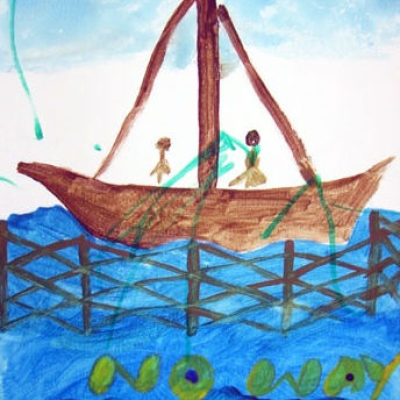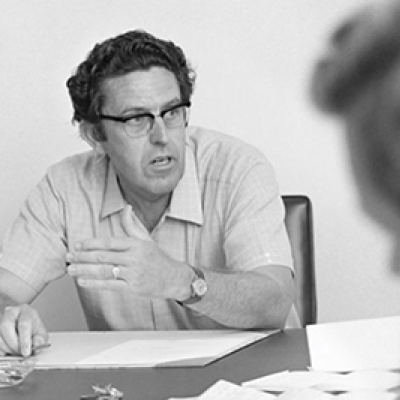Refine results
-
14 December 2012Book page
7 Some further aspects of the treatment of the young Indonesians
As discussed in Chapter 1, Australia’s international human rights obligations require that individuals who say that they are children be given the benefit of the doubt and treated as minors unless there is proof to the contrary. In the case of unaccompanied children, this should lead to consideration by the State of what steps need to be taken to ensure their special protection and care. -
22 July 2013Book page
Chapter 7: ADFA’s Structure and Staffing (Recommendations 11-15)
Key findings of Review The Review found that: The high turnover of Commandants and military staff has had a significant negative impact on ADFA’s leadership stability, continuity and organisational memory. The COMDT has limited influence over which staff are posted to ADFA and has limited engagement with ADF Service Chiefs. ADFA is not considered a prestigious posting for staff. This has an… -
Sex Discrimination31 May 2016Speech
Australasian Law Reform Agencies Conference
Domestic and family violence and human rights - We all have a right to live our lives free from violence, especially in our relationships, our families and in our homes. -
Legal14 December 2012Webpage
Temporary Exemption Application -Catholic Education Office
I am writing on behalf of the Catholic Education Office, Archdiocese of Sydney, ('the CEO') to request an exemption under section 44 of the Sex Discrimination Act ('the Act'). -
Asylum Seekers and Refugees8 November 2013Project

Transfer of asylum seekers to third countries
Learn how the Australian government introduced third-country processing for asylum seekers who came to Australia by boat without a valid visa in 2012. -
14 December 2012Book page
HREOC - Annual Report 2001 - 2002: Chapter 1: The Commission
The Commission is a national independent statutory body established under the Human Rights and Equal Opportunity Commission Act 1986. It has a President and five Commissioners. The five positions are currently held by three persons. -
14 December 2012Book page
HREOC Website: National Inquiry into Children in Immigration Detention
DR OZDOWSKI: I would like to formally open this public hearing which is one of a series of hearings conducted around Australia. My name is Sev Ozdowski and I'm the Human Rights Commissioner. I have two colleagues sitting with me, Mrs Robin Sullivan who is Queensland Children's Commissioner, who is assisting with the Inquiry and Dr Trang Thomas who is Professor of Psychology at the Royal Melbourne… -
14 December 2012Book page
Social Justice Report 2005 : Appendix 1 : Chronology of events relating to the new arrangements for the administration of Indigenous affairs, 1 July 2004 - 30 June 2005
This Appendix provides an overview of main events since the introduction of the new arrangements for the administration of Indigenous affairs on 1 July 2004. It commences with a summary table and is followed by a detailed description of each event. -
14 December 2012Book page
National Inquiry into Children in Immigration Detention
DR OZDOWSKI: I would like to formally open the second day of hearings in Adelaide. This is one of the hearings conducted around Australia for the National Inquiry into Children in Detention. My name is Sev Ozdowski, I'm the Human Rights Commissioner. With me is Mrs Robin Sullivan to my left, who is Queensland Children's Commissioner, and Dr Trang Thomas, on my right, is Professor of Psychology at… -
14 December 2012Book page
Questions and Answers About Refugees & Asylum Seekers
According to the United Nations Convention and Protocol relating to the Status of Refugees (also called the Refugee Convention), a refugee is someone who is outside their own country and cannot return due to a well-founded fear of persecution because of their: -
Aboriginal and Torres Strait Islander Social Justice1 March 2016Publication
Toomelah Report (1988)
The Toomelah community of five hundred Aboriginal people endures appalling living conditions which amount to a denial to them of the most basic rights taken for granted by most other groups in society, and by other Australian communities of similar size. Their houses are substandard and overcrowded, actually contributing to a range of diseases. The community has for decades lived without an… -
14 December 2012Book page
10. Physical Health of Children in Immigration Detention
The human right to health is not simply the right to health care. It is also a right to the underlying determinants of health, including food and nutrition, housing, access to safe drinking water and adequate sanitation, and a healthy environment. -
14 December 2012Book page
11. Children with Disabilities in Immigration Detention
One of the underlying goals of international and Australian laws relating to children with disabilities is to provide the highest possible level of support and assistance in the least restrictive way. Laws, policies and programs should be designed to ensure that children with disabilities have the opportunity to participate, to the maximum extent possible, in all aspects of the general community. -
Legal14 December 2012Webpage
Submission on Extradition review discussion paper
1.1 The Human Rights and Equal Opportunity Commission (‘HREOC’) is established by the Human Rights and Equal Opportunity Commission Act 1986 (Cth) (‘HREOC Act’). It is Australia's national human rights institution. 1.2 Its functions are set out in section 11(1) of the HREOC Act and include the power to promote an understanding and acceptance, and the public discussion, of… -
Race Discrimination8 November 2016Project

Kep Enderby Memorial Lecture Series
The Australian Human Rights Commission has established the Kep Enderby Memorial Lecture to honour the memory of the Hon. Kep Enderby QC (1926-2015), who as Attorney-General introduced the Racial Discrimination Bill in the House of Representatives on 13 February 1975. -
Rights and Freedoms3 March 2023Speech
'Reflections on women’s rights – past, present and future’
This presentation draws together reflections on women’s rights from the campaigns by the suffragists and suffragettes of the late 19th century and a consideration on how far we have come in realisation of women’s rights.
